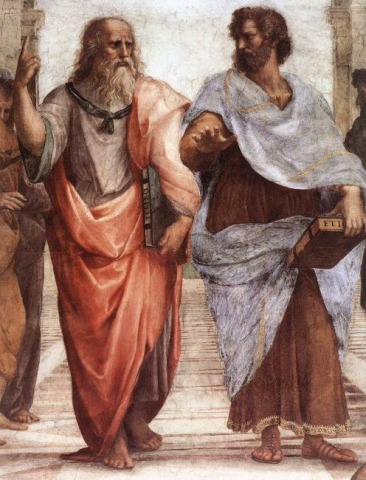
You saying playing fair is a natural law. But some people don't play fair.
I haven't argued that people always obey these precepts. I've only argued that they know them.
If they don't always obey them, then how do you know that they know them?
Because even when they don't obey them, they betray the telltale signs of guilty knowledge. For example, they make excuses. They try to convince everyone that they are playing fair and the others aren't.
But if there are things we "can't not know," then how is it even possible to make excuses?
People make excuses by using what they can't not know. All folk know that you ought to return a favor, so to rationalize not returning one they pretend either that they did return it or that it wasn't a favor. All folk know the wrong of deliberately taking innocent human life, so in order to rationalize murder they play games with the meaning of "deliberate," "innocent," "human," or "life." Excuses are not evidence that people don't know the natural law, but that they do.
What about people who really don't know what they "can't not know?"
How do you know they don't know it?
Because they say they don't.
Like relativists, thieves, and abortionists?
Well, yes.
I don't believe them.
So when someone denies that he knows the natural law, your only answer is "That just proves you're in denial."
Not at all. Everyone knows that it's wrong to cheat. If someone tells me that he has no such knowledge, it's true that I don't believe him. But I don't confuse denying it with "being in denial." For evidence that he really is in denial, I look elsewhere. For example, see how quickly he complains of injustice when someone tries to cheat him.
Here's someone who doesn't know what he "can't not know": The cannibal. He doesn't know that he shouldn't murder.
It is most unlikely that he doesn't know the wrong of deliberately taking innocent human life. What is much more likely is that he doesn't think the people in the other tribe are human.
What good is it to honor human life if you don't know who is human?
I didn't say he doesn't know that the people in the other tribe are human. I said he doesn't think that they are. Deep down, even the cannibal knows better. Otherwise, why does he perform elaborate expiatory rituals before he takes their lives?
Suppose you're right, and people do know the moral basics. Then why is it necessary to remind them?
Are you asking why moral education is necessary? All the forms of training from parental discipline on up?
Yes. If we already know what moral education has to tell us, then what purpose does it serve?
Moral education serves at least five purposes. It reinforces what we know, because the mere fact that we know something is wrong is not enough to keep us from doing it. It elicits what we know, because we know many things without noticing that we know them. It guards what we know, because although deep conscience cannot err, surface conscience can err in all too many ways. It builds upon what we know, because only the most general and basic matters of right and wrong are known to us immediately, and second knowledge must be added to first. Finally, it confronts us about what we know, because sometimes we need to be told "You know better."
A Dialogue on Natural Law, Part 4